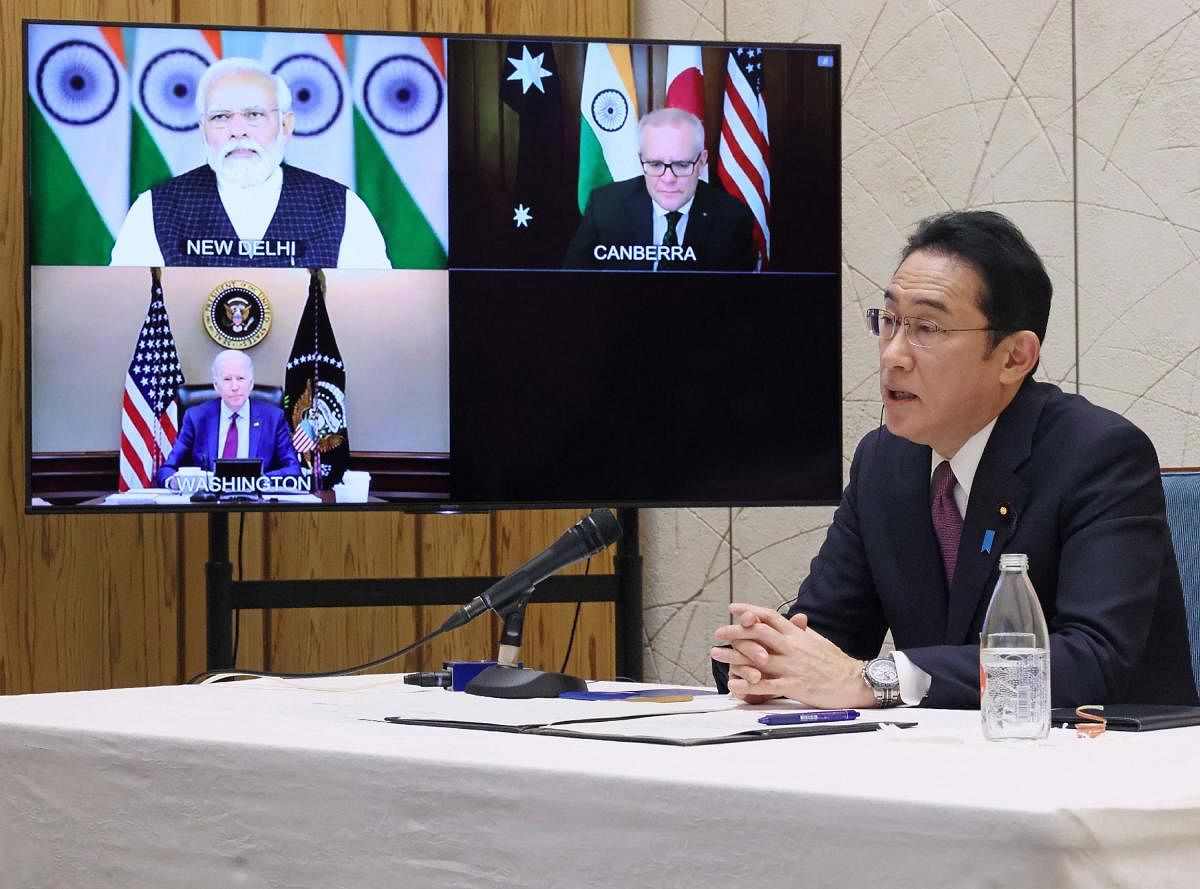
While Prime Minister Narendra Modi’s back-to-back summits with leaders of Japan and Australia were successful in taking forward India’s bilateral relationships with these two countries, differences over the Ukraine crisis appear to be casting their shadow over their cooperation as partners in the Quad. During his visit to Delhi, Japanese Prime Minister Fumio Kishida pledged $42 billion in investment in India over the coming five years, a substantial increase over the $35 billion that Prime Minister Shinzo Abe promised in 2014. The two sides also signed agreements on cybersecurity, urban development and a clean energy partnership. During their virtual summit, Modi and his Australian counterpart Scott Morrison set up a mechanism for an annual summit, which should pave the way for more regular and sustained engagement at the highest level between the two countries, and a new centre for bilateral relations that will focus on policy dialogue, building Australian business literacy, etc. The two sides also reaffirmed commitment to concluding a Comprehensive Economic Cooperation Agreement by the end of the year.
Indian officials have claimed that Japan and Australia ‘understand’ India’s position on the Ukraine crisis. However, joint statements and statements made by the leaders of the two countries tell a different story. The India-Japan joint statement made no mention of Russia. At a joint media interaction after the summit, while Kishida slammed the “Russian attack on Ukraine” for having “shaken the roots of the international order,” Modi did not refer to the Ukraine crisis at all, only noting that “geopolitical events” are presenting new challenges. Morrison too deplored Russia’s “unlawful invasion” of Ukraine. On Monday, US President Joe Biden referred to India’s “shaky response” to the Russian invasion. Contrary to Delhi’s claims, India’s Quad partners neither ‘understand’ nor seem to accept India’s stance as they continue to pressure Delhi to join them in condemning and acting against Russia.
There are small changes in India’s position on the crisis. If in the past it was unwilling to draw parallels between Russian aggression in Ukraine and Chinese belligerence in the Indo-Pacific, it has come around to exploring the “broader implications” of the Ukraine conflict for the Indo-Pacific region. Will this manifest in a shift in India’s position on the Ukraine crisis? That will become evident when the UN General Assembly votes soon on two resolutions on the humanitarian situation in Ukraine, one put forward by France and Mexico and the other by Russia. South Africa is expected to propose another resolution that avoids naming Russia as the aggressor. All eyes, especially those of India’s Quad partners, will be on India’s vote. India’s ‘neutral’ position on the Ukraine crisis is being tested.